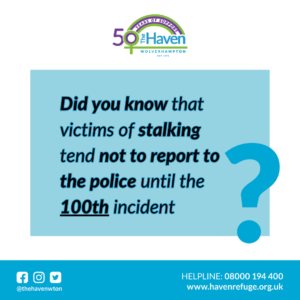 Stalking and harassment are serious issues that affect many people in the UK. The impact on victims can be devastating, leading to anxiety, depression, and in some cases, even suicide. In this post, we will explore its prevalence, its impact on victims, and the steps that can be taken to prevent and address these crimes.
Stalking and harassment are serious issues that affect many people in the UK. The impact on victims can be devastating, leading to anxiety, depression, and in some cases, even suicide. In this post, we will explore its prevalence, its impact on victims, and the steps that can be taken to prevent and address these crimes.
Stalking and harassment are criminal offences under the Protection from Harassment Act 1997 and can include behaviour such as persistent unwanted contact, following someone, and making threats. According to the Office for National Statistics (ONS), there were 1.5 million incidents of stalking and harassment in England and Wales in the year ending March 2021. This represents a 38% increase compared to the previous year and the highest number of incidents recorded since the ONS started collecting data on these crimes in 2015.
The impact of stalking and harassment on victims can be severe. According to a study by the Suzy Lamplugh Trust, 40% of victims reported experiencing anxiety, while 25% reported depression. In addition, 18% of victims reported having suicidal thoughts because of the stalking or harassment they had been subjected to.
Victims of stalking and harassment often feel isolated and alone, and may not know where to turn for help. However, there are a number of organisations and resources available to support victims of these crimes.
Reporting a stalker:
Call 999 if you or someone else is in immediate danger.
Contact your local police if it’s not an emergency.
Getting support:
You can get advice from the National Stalking Helpline.
National Stalking Helpline
Telephone: 0808 802 0300
Monday to Friday, 9:30am to 4pm (except Wednesday 9:30am to 8pm) National Stalking Helpline
Find out about call charges
You can also contact:
- Paladin National Stalking Advocacy Service
- Protection Against Stalking
- Use the Victim and Witness Information website to find support in your local area.
- Additional support is available if you’re in Scotland.
Prevention & Intervention
In addition to providing adequate support for victims, it is important that we take the necessary steps to prevent and address stalking and harassment. This includes raising awareness, improving the response of the criminal justice system, and ensuring that victims have access to the support they need. The government has also introduced a new stalking protection order, which allows police and courts to intervene at an earlier stage to prevent stalking and harassment from escalating.
Workplaces also have a role to play as statistics show that 55% of stalking victims reported experiencing stalking or harassment in the workplace. The cost of stalking and harassment in the workplace is high, with the average cost of a stalking case estimated to be around £11,000. This cost includes legal fees, lost productivity, and damage to the reputation of the organization. In a survey conducted by the Trades Union Congress (TUC), nearly 1 in 3 people reported experiencing harassment at work in the previous year, with women more likely to report experiencing harassment than men.
Employers have a duty of care to their employees to provide a safe and supportive working environment and should take proactive steps are taken to prevent and address stalking and harassment in the workplace. This may include implementing clear policies and procedures, providing training and support to employees, and engaging with external support services to address the issue. By taking a proactive approach employers can create a safer and more supportive working environment for all employees. The Haven Wolverhampton offers training and support to employers to help them protect their staff from stalking and harassment. If this is something that you are interested in for your business or organisation, contact the team via training@havenrefuge.org.uk. By working together, we can create a safer and more supportive environment for everyone in our communities.
Additional resources:
Stalking analysis reveals domestic abuse link
Women are being killed because the police don’t take stalking seriously – it’s nauseating



